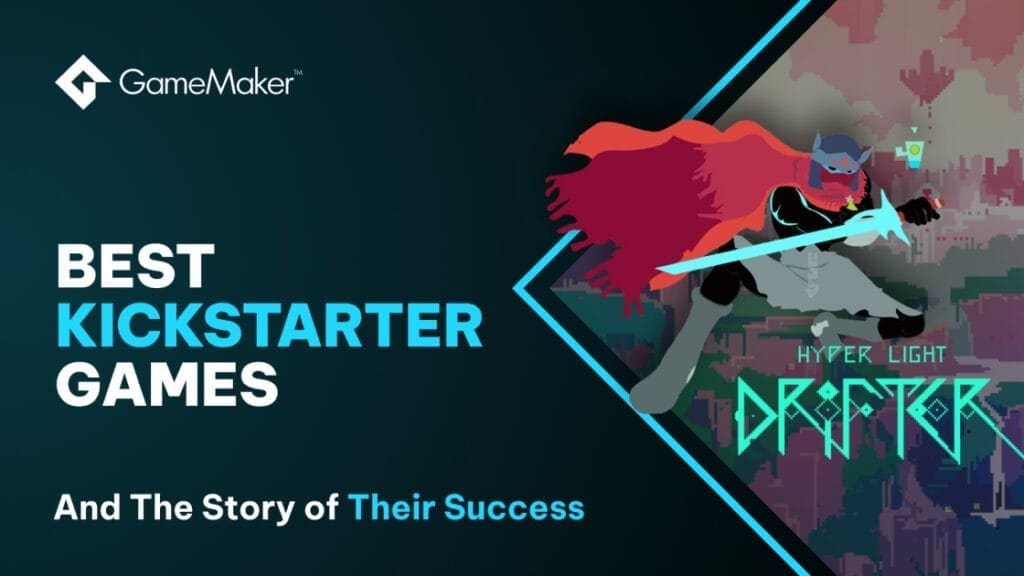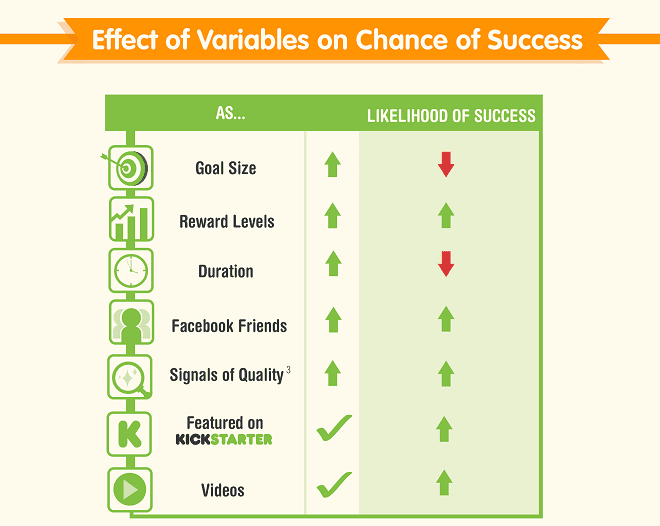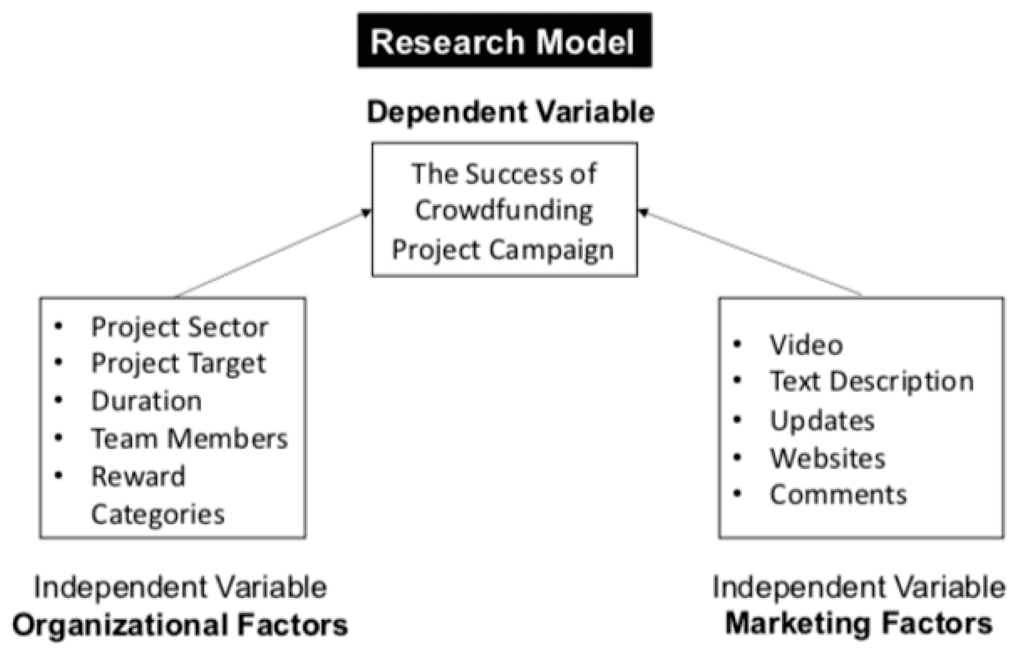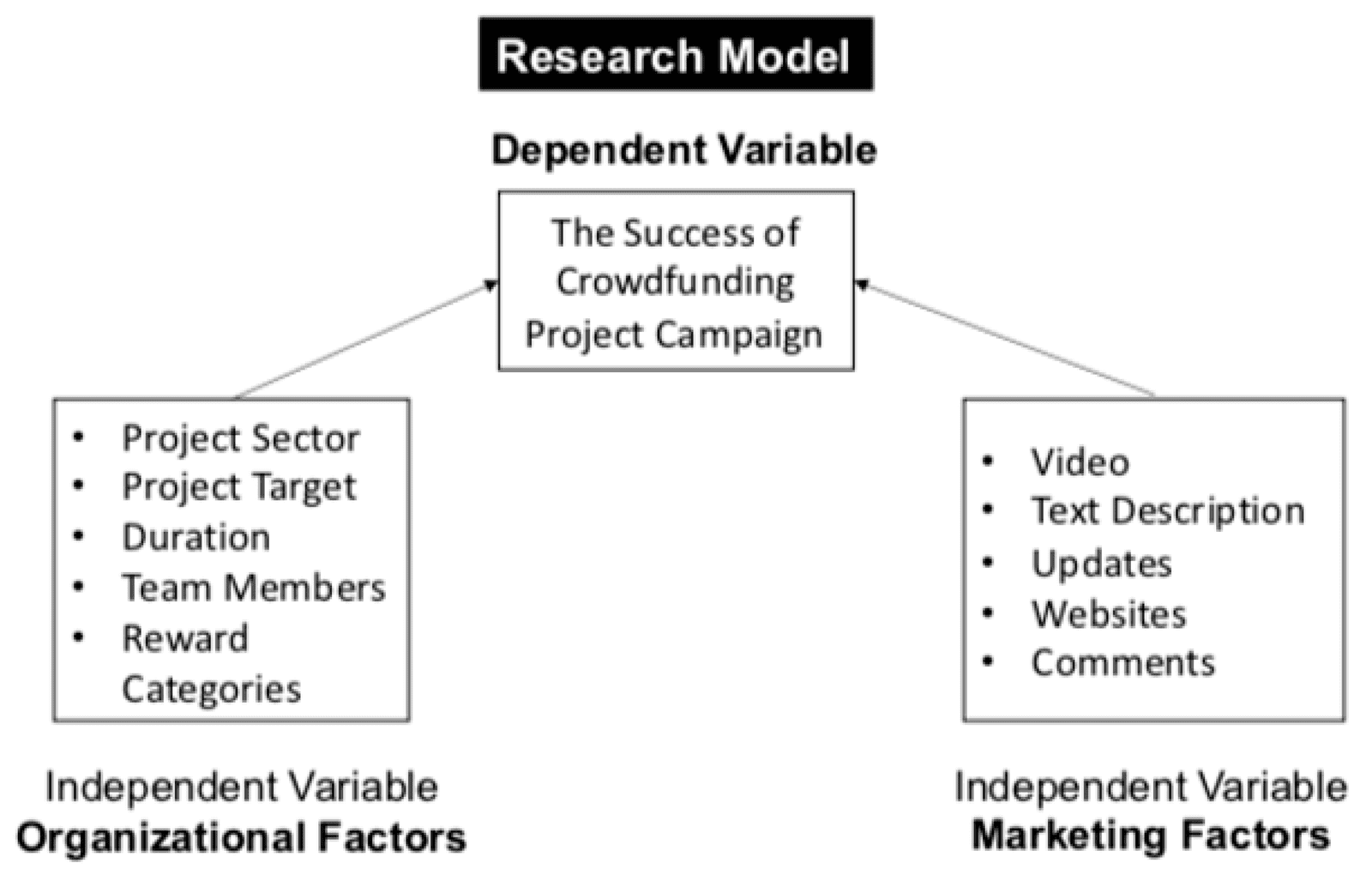In this article, you will learn about the impact of crowdfunding campaigns and how they are changing the game for content creators. Whether you're an aspiring filmmaker, musician, or writer, crowdfunding has become a popular avenue for artists to fund their creative projects. Through these campaigns, individuals are able to directly connect with their audience and gather financial support to turn their ideas into reality.
One of the key benefits of crowdfunding campaigns is that they provide a platform for creators to showcase their work and attract a community of dedicated supporters. By sharing your vision, sharing sneak peeks, or offering exclusive rewards, you can build a loyal fanbase who believes in your project and wants to see it succeed. Not only does this financial support help fund your project, but it also serves as validation that your content is valued and appealing to others. Crowdfunding campaigns have empowered content creators by giving them control over their creative direction and allowing them to directly engage with their audience, leading to increased success and opportunities in the industry.

What is Crowdfunding?
Crowdfunding is a method of raising capital for a project or venture by requesting small monetary contributions from a large number of individuals, typically via the internet. It has gained significant popularity in recent years due to its ability to mobilize a community of backers and provide opportunities for unique and innovative ideas to come to life. This article explores the definition of crowdfunding, the different types of crowdfunding, its benefits, success stories, strategies for a successful crowdfunding campaign, challenges and pitfalls, impact on various industries, economic growth, future trends, social impact, limitations, comparison with traditional funding, ethical considerations, and concludes with an overview of crowdfunding's potential and continued growth.
Definition of Crowdfunding
Crowdfunding refers to the practice of sourcing funds from a large number of individuals, often through online platforms, in order to finance a specific project or venture. It revolutionizes traditional funding methods by enabling entrepreneurs, artists, non-profit organizations, and individuals with unique ideas to connect directly with potential backers. Instead of relying on a few investors or financial institutions, crowdfunding allows individuals to contribute small amounts of money, often in exchange for a reward or equity, to support projects they believe in.
Different Types of Crowdfunding
There are various types of crowdfunding, each catering to different needs and objectives. The most common types include:
-
Donation-based Crowdfunding: In this model, individuals contribute money to support a cause or project without expecting anything in return, except perhaps the satisfaction of helping a needy or innovative initiative.
-
Reward-based Crowdfunding: This model involves contributors pledging money in exchange for a reward or product once the project is successfully funded and completed. The rewards can range from a simple thank you note to early access to the product or exclusive merchandise.
-
Equity-based Crowdfunding: Equity crowdfunding allows individuals to invest in a company or venture in exchange for equity or ownership. This model gives backers the potential for financial returns if the venture succeeds.
-
Lending-based Crowdfunding: Also known as peer-to-peer lending or debt-based crowdfunding, this model involves individuals lending money to borrowers and receiving interest on their investment over time.
Benefits of Crowdfunding
Crowdfunding offers several benefits for project creators, backers, and the overall community. Some of the key benefits include:
-
Access to Capital: Crowdfunding provides an alternative source of funding for individuals or organizations that may not have access to traditional funding routes. It allows projects to get off the ground without relying on banks or venture capitalists.
-
Market Validation: A successful crowdfunding campaign can serve as proof of concept and validate the market demand for a product or idea. It allows creators to test their ideas, gather valuable feedback, and build a community of early adopters.
-
Increased Visibility: Crowdfunding platforms provide a platform for projects to gain visibility and reach a wider audience. Backers can share the campaign with their network, helping to amplify the project's exposure and potentially attract more funding.
-
Building a Community: Crowdfunding campaigns often create a sense of community around the project by involving backers in the development process. This not only fosters a loyal customer base but also provides valuable insights and feedback for the project creators.
-
Flexibility and Freedom: Crowdfunding allows project creators to retain control over their ideas and vision, as they are not bound by the demands of traditional investors. They can choose their own terms and creative rewards for backers.
Now that we understand the basics of crowdfunding, let's delve into some success stories that highlight the transformative power of crowdfunding campaigns.
Success Stories
Case Study 1: XYZ Company's Innovative Product
XYZ Company, a tech startup, had a groundbreaking idea for a smart home device that promised to revolutionize the way people interact with their homes. Determined to bring their vision to life, the founders launched a crowdfunding campaign on a popular platform.
Utilizing the power of effective storytelling and communication, XYZ Company crafted a compelling campaign page that explained their product's features, benefits, and the problems it aimed to solve. They showcased a prototype and shared user testimonials to build credibility and trust among potential backers.
To build a strong online presence, XYZ Company optimized their campaign page for search engines and engaged with their target audience through social media platforms. They provided regular updates, answered questions, and encouraged their backers to share the campaign with their networks.
XYZ Company also created engaging rewards and incentives to encourage people to contribute to their campaign. They offered early-bird discounts, exclusive access to future updates, and the opportunity to be part of the product development process. These rewards not only incentivized backers, but also helped XYZ Company gain valuable feedback from their early supporters.
By building relationships with potential backers, XYZ Company went beyond just asking for monetary contributions. They actively engaged with their audience, addressed concerns, and made an effort to understand their needs and expectations. This helped create a sense of ownership and loyalty among their backers.
To promote their campaign, XYZ Company implemented a comprehensive marketing and promotion plan that included targeted online advertisements, influencer collaborations, and participation in relevant industry events. They also leveraged the power of press releases and media coverage to generate buzz and increase their campaign's visibility.
Throughout the campaign, XYZ Company closely tracked and analyzed their progress to identify areas where they could improve and address any potential challenges. They used analytics tools provided by the crowdfunding platform to monitor conversion rates, traffic sources, and backer engagement.
With an effective crowdfunding campaign strategy in place, XYZ Company successfully surpassed their funding goal, raising far more funds than they initially anticipated. The campaign not only helped them finance the product development and manufacturing process but also built a loyal community of early adopters who eagerly awaited the product's launch.
Case Study 2: ABC Organization's Community Project
ABC Organization, a non-profit focused on empowering underprivileged communities, wanted to create a community garden and learning center in a low-income neighborhood. They believed that this project could provide educational opportunities, improve food security, and foster community engagement.
With limited access to traditional funding sources, ABC Organization turned to crowdfunding to raise the necessary funds. They understood the importance of setting clear goals and objectives for their campaign, so they clearly outlined the project's mission, objectives, and the positive impact it could have on the community.
Through compelling storytelling and communication, ABC Organization shared stories of individuals in the community who would directly benefit from the project. They highlighted the importance of community involvement and encouraged potential backers to become a part of the positive change they were seeking to create.
Building a strong online presence was crucial for ABC Organization to reach a wider audience and garner support for their campaign. They utilized social media platforms to engage with their target audience, shared updates on the progress of the project, and encouraged community members to share their stories.
To encourage contributions, ABC Organization created engaging rewards and incentives that resonated with their backers. They offered personalized thank you notes, recognition on the project's website, and the opportunity to have a tree with their name planted in the community garden as a token of appreciation.
ABC Organization understood the importance of building relationships with potential backers. They actively communicated with their supporters, addressing concerns, providing project updates, and expressing gratitude for their contributions. They also organized community events where backers could directly interact with the organization's team and learn more about the project.
Implementing a marketing and promotion plan was essential for ABC Organization to raise awareness about their campaign. They collaborated with local media outlets, hosted fundraisers, and partnered with other organizations working towards similar goals. This helped them broaden their reach and generate interest in their cause.
Throughout the campaign, ABC Organization tracked and analyzed their progress, continuously refining their strategy based on data-driven insights. They adjusted their communication tactics, experimented with different rewards, and identified potential backers who could help amplify their campaign's reach.
Thanks to a successful crowdfunding campaign, ABC Organization surpassed their funding goal and received overwhelming support from the community. The project was successfully implemented, providing the community with a much-needed space for learning, growing food, and strengthening bonds among neighbors.
These success stories highlight how effective crowdfunding campaigns can transform dreams into reality. Now, let's explore some strategies that can help you create a successful crowdfunding campaign.

Strategies for a Successful Crowdfunding Campaign
A successful crowdfunding campaign requires careful planning, effective communication, and a well-executed strategy. Here are some key strategies to consider:
Setting Clear Goals and Objectives
Before launching a crowdfunding campaign, it's crucial to set clear goals and objectives. Define the purpose of your campaign, the amount of funds needed, and the timeline for achieving your goals. By setting measurable and achievable targets, you can track your progress and make necessary adjustments along the way.
Effective Storytelling and Communication
Craft a compelling narrative around your project that engages and resonates with potential backers. Clearly articulate the problem your project solves, the impact it will have, and why it is important. Use visuals, videos, and testimonials to bring your story to life and establish an emotional connection with your audience.
Building a Strong Online Presence
An active and engaging online presence is crucial for the success of your crowdfunding campaign. Create a visually appealing campaign page, optimize it for search engines, and ensure it is user-friendly. Use social media platforms to share updates, engage with your audience, and build anticipation for your campaign.
Utilizing Social Media Platforms
Social media platforms are powerful tools for reaching a wider audience and spreading awareness about your campaign. Identify the platforms most relevant to your target audience and develop a social media strategy that includes regular updates, engaging content, and interaction with your followers. Encourage your backers to share your campaign with their networks to amplify its reach.
Creating Engaging Rewards and Incentives
Design creative and compelling rewards or incentives for your backers. Consider offering exclusive access to your product or service, personalized experiences, or limited-edition merchandise. Make sure your rewards align with your project and provide value to your backers.
Building Relationships with Potential Backers
Engage with your potential backers beyond just asking for their financial support. Interact with them on social media, respond to their questions and feedback, and show genuine gratitude for their interest. Personalize your communication to make them feel involved in your project's journey.
Implementing a Marketing and Promotion Plan
Develop a marketing and promotion plan to raise awareness about your campaign. Leverage the power of press releases, collaborations with influencers or industry experts, and partnerships with relevant organizations. Identify potential backers and supporters who can help amplify your campaign's visibility.
Tracking and Analyzing Campaign Progress
Regularly monitor and analyze your campaign's progress. Utilize the analytics tools provided by the crowdfunding platform to track conversion rates, traffic sources, and backer engagement. Adjust your strategy based on the insights gathered to optimize your campaign's performance.
By implementing these strategies, you can significantly increase your chances of running a successful crowdfunding campaign. However, it is essential to be aware of the challenges and potential pitfalls that you may encounter along the way.
Challenges and Pitfalls in Crowdfunding
While crowdfunding offers numerous opportunities, it is not without its challenges. Here are some common challenges and pitfalls associated with crowdfunding campaigns:
Lack of Credibility and Trust
Building credibility and trust among potential backers can be a significant challenge, especially for first-time project creators. Backers want to ensure that their contributions will be used appropriately and that the project will be executed successfully. Communicate transparently, provide regular updates, and demonstrate accountability to establish trust.
Failure to Meet Campaign Goals
Setting unrealistic funding goals can lead to disappointment and the failure of your crowdfunding campaign. Research similar projects, estimate the costs accurately, and set achievable targets. It is better to exceed a modest goal than to fall short of an ambitious one.
Managing Backer Expectations
Crowdfunding campaigns can generate high expectations among backers. It is essential to manage these expectations by clearly communicating the challenges, risks, and potential delays associated with your project. Be transparent about any unforeseen obstacles that may arise and set realistic timelines for delivery.
Legal and Regulatory Complexities
Crowdfunding campaigns may be subject to legal and regulatory requirements depending on the region or industry in which you operate. Ensure that you have a thorough understanding of the relevant laws and regulations, such as securities laws and consumer protection regulations, to avoid any legal complications.
Intellectual Property Concerns
Sharing your project details and ideas publicly during a crowdfunding campaign can expose you to potential intellectual property risks. Safeguard your intellectual property by filing patents, trademarks, or copyrights where applicable. Consider consulting with an intellectual property attorney to protect your rights.
Competition from Established Brands
Crowdfunding platforms attract a wide array of projects, making it increasingly competitive to stand out. Established brands or projects with significant marketing budgets may overshadow smaller projects. To mitigate this challenge, focus on building strong relationships with your niche audience, leveraging your unique selling points, and telling a compelling story.
While these challenges may seem daunting, they can be overcome with careful planning, effective communication, and adaptability. Despite the potential pitfalls, crowdfunding has had a significant impact on various industries and continues to grow in popularity.

Impact of Crowdfunding on Various Industries
Crowdfunding has had a transformative effect on various industries, empowering individuals, and creating opportunities for innovation and social change. Let's explore how crowdfunding has impacted some key sectors:
Technology and Innovation
Crowdfunding has democratized access to capital for tech startups and innovative projects. It has enabled entrepreneurs to bring their revolutionary ideas to market without relying on traditional funding sources. Crowdfunding campaigns have played a vital role in the development of cutting-edge technologies such as virtual reality, artificial intelligence, and clean energy solutions.
Art and Creativity
Crowdfunding has revolutionized the art and creative industries by providing artists, writers, musicians, and filmmakers with a platform to showcase their work and connect directly with their audience. Crowdfunding allows artists to fund their projects, produce their work independently, and maintain creative control.
Social Causes and Non-Profit Organizations
Non-profit organizations and social causes have leveraged crowdfunding to fund impactful projects and engage with a global community of supporters. Crowdfunding has helped fund disaster relief efforts, social justice campaigns, healthcare initiatives, and educational programs, enabling individuals and organizations to make a difference in their communities.
Startups and Entrepreneurship
Crowdfunding has become an essential part of the startup ecosystem, offering early-stage funding and validation for entrepreneurial ventures. It has allowed founders to raise capital, attract early adopters, and refine their product-market fit. Crowdfunding has also helped entrepreneurs test their ideas and gather market feedback before seeking additional investments.
Film and Entertainment
The film and entertainment industry has embraced crowdfunding as a means to finance independent films, documentaries, and creative projects. Crowdfunding platforms have allowed filmmakers to bypass traditional financing barriers, connect directly with their audience, and bring their stories to the screen.
The impact of crowdfunding extends beyond specific industries. It has also played a significant role in driving economic growth and creating opportunities for underrepresented communities.
Crowdfunding and Economic Growth
Crowdfunding can stimulate economic growth by supporting local businesses, boosting job creation and innovation, and providing access to capital for marginalized communities. Here are some ways in which crowdfunding contributes to economic development:
Supporting Local Businesses and Small Scale Initiatives
Crowdfunding enables local businesses and small-scale initiatives to raise capital directly from their communities. This helps drive economic growth at the grassroots level by facilitating entrepreneurship, creating jobs, and encouraging local spending.
Boosting Job Creation and Innovation
By providing capital and support to startups and innovative projects, crowdfunding contributes to job creation and stimulates innovation. It allows entrepreneurs to hire talent, develop new products or services, and bring their ideas to market, ultimately driving economic growth.
Stimulating Economic Development in Underprivileged Areas
Crowdfunding provides a unique opportunity for underprivileged communities to uplift themselves economically. By lowering the barriers to capital access, crowdfunding enables individuals and communities in underprivileged areas to fund their initiatives, create businesses, and participate in economic development.
Access to Capital for Marginalized Communities
Traditional funding sources may be inaccessible for marginalized communities due to systemic inequalities and biases. Crowdfunding offers an alternative avenue for individuals from marginalized communities to access capital, launch businesses, and overcome financial barriers.
As crowdfunding continues to evolve, several future trends are shaping the way campaigns are executed and the impact they can have.

Future Trends in Crowdfunding
Crowdfunding is an ever-evolving space, influenced by technological advancements, changing investor preferences, and regulatory developments. Here are some future trends that are likely to shape the crowdfunding landscape:
Tokenization of Assets and Decentralized Crowdfunding
Blockchain technology has paved the way for the tokenization of assets, allowing investors to own fractionalized shares or tokens representing ownership. Decentralized crowdfunding platforms built on blockchain technology provide transparent and secure crowdfunding opportunities, eliminating intermediaries and increasing investor protection.
Integration of Blockchain Technology
Blockchain technology offers additional benefits to crowdfunding campaigns, including transparent record-keeping, secure transactions, and improved accountability. Smart contracts, powered by blockchain technology, can automate the distribution of rewards, dividends, and governance within a crowdfunding project.
Increased Regulation and Investor Protection
As the crowdfunding industry continues to grow, regulators are introducing new frameworks and guidelines to protect investors and maintain market integrity. Increased regulation can help mitigate risks associated with fraudulent or unscrupulous campaigns and provide a more secure environment for backers.
Cross-Border Crowdfunding
Advancements in technology and the rise of global crowdfunding platforms are facilitating cross-border crowdfunding campaigns. This trend allows project creators to access a broader pool of potential backers, regardless of their geographic location.
These future trends will shape the crowdfunding landscape, offering new opportunities for both project creators and backers. However, it is essential to recognize the social impact crowdfunding can have on individuals and communities.
Crowdfunding and Social Impact
Crowdfunding campaigns have the power to create social change, empower individuals and communities, and address societal challenges. Here are some ways in which crowdfunding has a positive social impact:
Empowering Individuals and Communities
Crowdfunding allows individuals and communities to take control of their destiny by giving them the means to fund their projects and initiatives. It provides a sense of empowerment and agency, enabling individuals to create positive change in their lives and communities.
Supporting Diverse Voices and Representation
Crowdfunding has democratized access to funding, giving a voice to underrepresented and marginalized communities. It allows projects by individuals from diverse backgrounds, cultures, and perspectives to receive support, fostering inclusivity and promoting diversity.
Addressing Societal Challenges
Crowdfunding has been instrumental in addressing pressing societal challenges such as poverty, inequality, and climate change. It has facilitated the funding of projects that aim to improve education, healthcare, access to clean water, and environmental sustainability.
Promoting Sustainable and Ethical Projects
Crowdfunding has become a platform for projects that prioritize sustainability, social responsibility, and ethical practices. Backers are increasingly drawn to projects that align with their values, such as those focused on renewable energy, fair trade, and waste reduction.
The social impact of crowdfunding extends beyond financial contributions. It can transform lives, inspire social movements, and create lasting change.

Limitations of Crowdfunding
While crowdfunding offers numerous opportunities, it also has limitations that project creators and backers should be aware of:
Limited Funding Potential for Large-Scale Projects
Crowdfunding may not be suitable for large-scale projects that require substantial funding. While it can provide a valuable source of seed capital, projects with significant financial needs may require additional funding sources, such as venture capital or public grants.
Dependency on Online Platforms
Crowdfunding is heavily reliant on online platforms, which could be a limitation for individuals or communities with limited internet access or technological literacy. Lack of access to online platforms may hinder the ability to launch and promote a successful crowdfunding campaign.
Inequality in Access to Funding Opportunities
Not all projects receive equal exposure or support on crowdfunding platforms. Established creators or projects with extensive social networks may have an advantage in gaining visibility and attracting backers. This can create barriers for newcomers or projects led by individuals who lack existing networks.
High Competition and Saturation
The popularity of crowdfunding has led to increased competition and saturation on crowdfunding platforms. Standing out and capturing the attention of potential backers among the vast number of campaigns can be challenging. Unique selling propositions, compelling storytelling, and targeted marketing efforts are essential to overcome this challenge.
Understanding these limitations can help project creators and backers make informed decisions about when and how to leverage the power of crowdfunding. To provide a comprehensive perspective, let's compare crowdfunding with traditional funding methods.
Crowdfunding vs Traditional Funding
Crowdfunding and traditional funding methods each have their own pros and cons. Understanding the advantages and disadvantages of both can help you determine which approach is best for your project:
Pros and Cons of Crowdfunding
Pros:
- Access to a broader pool of potential backers
- Market validation and feedback
- Retention of creative control and ownership
- Retaining independence from traditional investors
- Opportunity to build a community around your project
Cons:
- Time-consuming campaign preparation and management
- High competition on crowdfunding platforms
- Dependency on online presence and marketing efforts
- Legal and regulatory compliance requirements
Advantages of Traditional Funding
Traditional funding methods, such as venture capital or bank loans, offer their own advantages for certain projects:
Pros:
- Potential for higher funding amounts
- Expertise and guidance from investors
- Established networks and industry connections
- More straightforward legal and regulatory processes
- Faster access to funding for qualified projects
It is essential to carefully evaluate your project's specific needs, funding goals, and long-term objectives before choosing between crowdfunding and traditional funding methods. In some cases, a combination of both approaches may be the most practical solution.
Case Studies
Let's explore two additional success stories that demonstrate the transformative power of crowdfunding:
Success Story 1: Revolutionizing the Technology Industry
Tech Innovators Inc., a startup focused on developing affordable and accessible tech solutions, launched a crowdfunding campaign to fund the development of their revolutionary device. By effectively communicating the device's features, benefits, and value proposition to potential backers, Tech Innovators Inc. generated significant interest in their project.
Building a strong online presence and utilizing social media platforms, Tech Innovators Inc. engaged with their target audience, shared updates, and created a community of early adopters. Their campaign gained traction through organic shares and positive word-of-mouth, further amplifying their reach.
By creating engaging rewards and incentives, such as exclusive early access to the device and personalized product recommendations, Tech Innovators Inc. incentivized backers to support their campaign. In addition, they leveraged partnerships with industry influencers and invited their supporters to participate in the product development process.
Implementing a comprehensive marketing and promotion plan, Tech Innovators Inc. collaborated with relevant tech publications, hosted product launch events, and organized live demonstrations at industry conferences. This generated substantial media coverage and increased visibility for their campaign.
Thanks to their successful crowdfunding campaign, Tech Innovators Inc. not only surpassed their funding goal but also built a community of early adopters who eagerly embraced their product. The crowdfunding campaign served as a springboard for Tech Innovators Inc., propelling them towards success in the technology industry.
Success Story 2: Transforming Education with Crowdfunding
ABC Education Foundation, a non-profit organization dedicated to improving education in underserved areas, launched a crowdfunding campaign to fund the development of a mobile learning app. They believed that this app could bridge the educational gap and provide equal opportunities for children in disadvantaged communities.
ABC Education Foundation crafted a compelling campaign page that highlighted the app's features, the positive impact it could have on students, and the importance of accessible education for all. By incorporating real-life success stories and testimonials from students and teachers, ABC Education Foundation established a personal connection with potential backers.
To dive deeper into the power of effective storytelling, ABC Education Foundation produced videos showcasing the struggles faced by students in underserved communities and how the mobile learning app could make a difference. These emotional videos not only resonated with potential backers but also generated substantial sharing and exposure on social media.
Building strong relationships with potential backers was a top priority for ABC Education Foundation. They held online Q&A sessions, responded promptly to inquiries, and engaged in direct conversations with their supporters. This personalized approach helped develop a sense of community and trust among backers.
Through various marketing channels, including partnerships with local schools, community centers, and educational influencers, ABC Education Foundation effectively promoted their campaign. This generated widespread support from backers who believed in the cause and wanted to contribute to transforming education for underprivileged children.
Thanks to the overwhelming response to their crowdfunding campaign, ABC Education Foundation not only met their funding goal but also exceeded it, allowing them to expand the scope of their project. The mobile learning app they developed has since been deployed in multiple schools, providing a valuable educational resource for children in underserved areas.
These success stories demonstrate the transformative power of crowdfunding campaigns and the positive impact they can have on individuals, communities, and industries. However, it is crucial to consider ethical considerations to ensure transparency, accountability, and the protection of backers' rights.
Ethical Considerations in Crowdfunding
Crowdfunding campaigns, while exciting and potentially transformative, come with ethical considerations that both project creators and backers should be mindful of:
Ensuring Transparency and Accountability
Project creators have a responsibility to be transparent about how they will use the funds raised during their crowdfunding campaign. Regular updates, clear communication, and genuine accountability for milestones and deliverables are essential to maintain trust and transparency.
Preventing Fraud and Scams
Crowdfunding platforms have become targets for fraudulent campaigns or projects that never intend to deliver on their promises. Project creators and backers must exercise caution, conduct due diligence, and report any suspicious or fraudulent activities. Crowdfunding platforms also play a vital role in implementing safeguards to protect their users.
Protecting Backers' Rights and Privacy
Project creators must ensure that they respect their backers' rights to privacy and protect their personal information. Handling personal data responsibly and following applicable privacy regulations are critical to maintaining trust.
By upholding these ethical considerations, crowdfunding campaigns can create sustainable and mutually beneficial relationships between project creators and backers.
Conclusion
Crowdfunding has revolutionized the funding landscape, providing opportunities for innovative projects, entrepreneurial ventures, and social causes to come to life. Its transformative power is evident in the success stories shared in this article, which demonstrate the multitude of ways crowdfunding campaigns can create change and impact various industries.
Through effective storytelling, clear communication, and engaging with potential backers, project creators can build a dedicated community that supports their vision. Crowdfunding offers a platform for diverse voices, promotes social impact, and stimulates economic growth by supporting local businesses, fostering job creation, and empowering underprivileged communities.
While crowdfunding has its limitations and challenges, such as the need for online platforms and the requirement to stand out among a highly competitive landscape, its benefits outweigh the potential pitfalls. Crowdfunding allows individuals and organizations to access capital, gain market validation, and retain creative control over their projects.
As crowdfunding continues to grow, future trends such as tokenization, integration of blockchain technology, increased regulation, and cross-border campaigns will shape the industry. Crowdfunding holds the potential to foster innovation, drive social change, and create opportunities for projects that may have otherwise gone unrecognized.
By adhering to ethical considerations, such as ensuring transparency and accountability, preventing fraud and scams, and protecting backers' rights and privacy, crowdfunding campaigns can create a positive and sustainable ecosystem.
In summary, crowdfunding is changing the game by empowering individuals, fostering innovation, and addressing societal challenges. Its impact on various industries, economic growth, and social change make crowdfunding a powerful tool for individuals, communities, and organizations to shape a brighter future.





